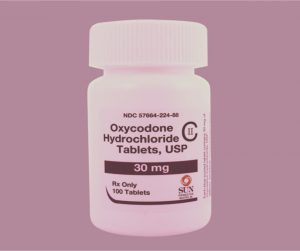Navigation:
- The Truth about Prescription Drugs: Oxycodone Overview
- What You Should Know About Oxycodone Overdose
- Why Do People Abuse Opioids?
The Truth about Prescription Drugs: Oxycodone Overview
 The thing you should know about prescription drugs like oxycodone is that they are considered safe unless they are misused. Oxycodone is a Schedule II drug, which means it has its medical uses, but it also has a high risk of abuse. So while this drug can be helpful for certain patients, there are risks involved. It is important to take these medications exactly as prescribed and stay in touch with your doctor to report any unwanted side effects. Opioids like oxycodone are generally prescribed for pain relief. Patients who are struggling with moderate to severe pain may be given oxycodone or another opioid, depending on their condition. Opiates and opioids are narcotics that block the pain signals from entering the brain. This changes the way the brain responds to pain, therefore giving the user relief. Unfortunately, these narcotics also trigger the brain’s reward system by making you feel relaxed and euphoric. That is why a significant number of people tend to misuse their prescription. Some opioids are even potent enough to produce side effects even when taken in proper doses. But of course, abusing the drug increases the risk. So what exactly is this risk? What makes opioid abuse so dangerous?
The thing you should know about prescription drugs like oxycodone is that they are considered safe unless they are misused. Oxycodone is a Schedule II drug, which means it has its medical uses, but it also has a high risk of abuse. So while this drug can be helpful for certain patients, there are risks involved. It is important to take these medications exactly as prescribed and stay in touch with your doctor to report any unwanted side effects. Opioids like oxycodone are generally prescribed for pain relief. Patients who are struggling with moderate to severe pain may be given oxycodone or another opioid, depending on their condition. Opiates and opioids are narcotics that block the pain signals from entering the brain. This changes the way the brain responds to pain, therefore giving the user relief. Unfortunately, these narcotics also trigger the brain’s reward system by making you feel relaxed and euphoric. That is why a significant number of people tend to misuse their prescription. Some opioids are even potent enough to produce side effects even when taken in proper doses. But of course, abusing the drug increases the risk. So what exactly is this risk? What makes opioid abuse so dangerous?
What You Should Know About Oxycodone Overdose
It is possible to overdose on a drug like oxycodone. This is a medical emergency that demands immediate attention. So how do you know if someone is experiencing an overdose? Opioids tend to slow down brain activity. This is why an overdose would make the person act more lethargic. Their breathing might slow down or suddenly stop. Their heart rate may also slow down or stop—this is dangerous for obvious reasons. They may display irregular breathing patterns, become extremely sleepy, or seem depressed. Other common symptoms to look out for are the following: constricted pupils, intense gastrointestinal distress, hallucinations, delusions, unconsciousness, shaking, tremors, seizures, and very low blood pressure. The person might choke while unconscious because of vomiting or breathing difficulties. Do not hesitate to seek medical assistance. Overdose can be avoided with preventative measures. [maxbutton id="2" ]Why Do People Abuse Opioids?
People take large doses of opioids in order to get high. This is why they will take their prescription recreationally. You will notice that they are running out of their medication long before they are supposed to. In some cases, recreational users will go “doctor shopping” in order to get multiple prescriptions from different doctors. But anyone can overdose on Oxycodone, even if they have a valid medical prescription. If your doctor gives you oxycodone for your pain, be sure to follow their instructions carefully, and do not take it more often than you’re supposed to. Do not take larger doses and do not attempt to get high. Most cases of overdose are closely connected to addiction. As habit-forming substances, opioids can easily get someone hooked, especially if they are taking it frequently. They will first develop tolerance, which means they need to take more opioids to get high. Soon they’ll become opioid dependent, and they won’t be able to quit without relapsing or going through withdrawal. Addiction is when the person compulsively takes oxycodone even if they are already experiencing the consequences. At any point, they can suffer from a fatal overdose, which makes opioid addiction so dangerous. Addiction treatment is necessary so that the addicted individual can get over their withdrawal symptoms and cravings properly. A comprehensive treatment program will go a long way. With a combination of medical detox and behavioral therapy, they can get back to living a sober life. Look for a drug rehab facility near you today!
Can Oxycodone Kill You: The Dangers of Overdose was originally seen on www.rehabnear.me
from
https://www.rehabnear.me/can-oxycodone-kill-you/

No comments:
Post a Comment